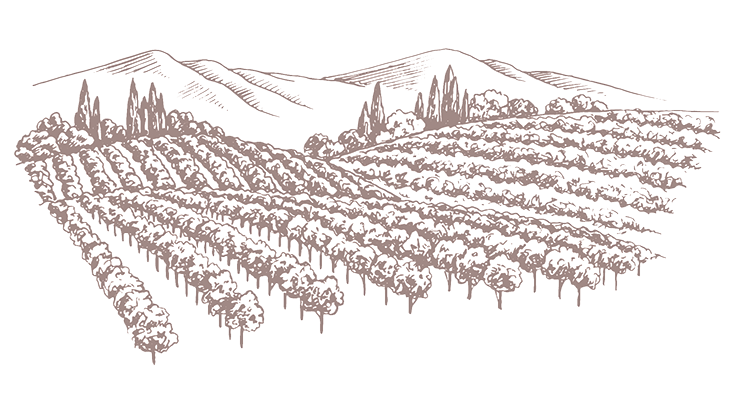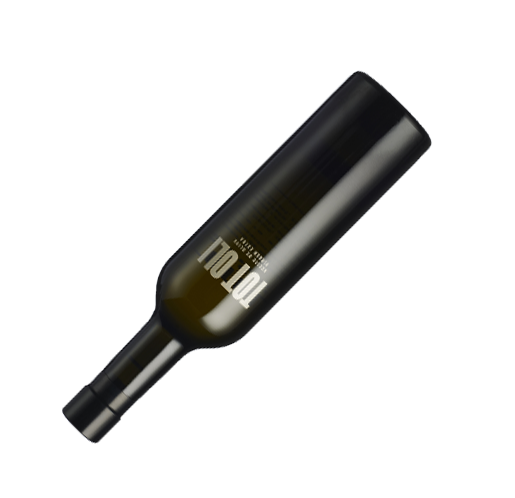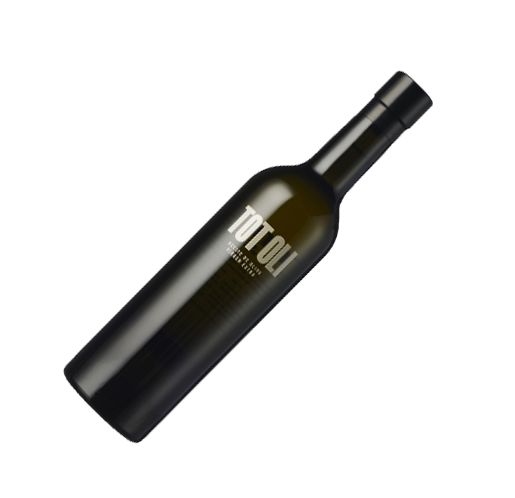



Todolí & Tot Oli. From the country of La Foradada
We ascend from the sea to the highlands of Diania. An ancestral path connects the rugged villages of Vall d’Ebo and Alcalà de la Jovada. In the contours of this millenary road we discover the archaeological marks of two Roman rural settlements; the Villae de la Roca and La Cairola.
Throughout the centuries, year after year, in their presses and in large jars, doliae, they stored the golden oil. They extracted it by crushing the olives by rubbing the grinding wheels, orbs, the mill, trapetvm, and with force they constricted the paste of the olives in the press, torcvlvm. In this way, the culture of wine, like that of oil, in these mountainous lands was an indissoluble part of the agrarian landscape already in Roman times.
With al-Ándalus, the rural landscape around La Foradada was structured around two fortresses, husun; the castles of Gallinera and Alcalà. Each one exercised territorial control of several farmsteads, qayrias. They were inhabited by family clans with a Muslim population, which left their trace in place names; bni … They cultivated tiny gardens and dry land. The use of the oil mill or oil mill, as well as the transformation of the olive into oil, was a common task during the Middle Ages (and Modern). The cellars of these fortresses, in feudal times, in the hands of the territorial lords, housed barrels and jugs with wine, as well as oil in jars. They were fruits of the earth, often coming from the tax practice, at the service of those who lived in the castles.
If we zoom into the microcosm of La Foradada, we discover, next to the unique hole that pierces the rock, from which its place name derives, the archaeological remains of a watchtower. Built with a mud factory, the remains of a cistern are preserved. It was active during the 11th, 12th and 13th centuries and contributed to the surveillance and control of the surrounding land, in visual connection with the castles. A ray of sunlight that pierced the hole in the rock and pointed to a place, interpreted as the almost miraculous effect of an astronomical conjunction, had a monastery of the order of San Francisco built in Benitaia in 1611, under the auspices of the Borgia , at that time territorial lords of the Vall de Gallinera.
The place now occupied by the Todolí olive trees was once a land of pastures and forests. It was, however, immersed in an environment that would produce for centuries the golden oil, the fruit of the ancestral agrarian landscape.
The olive trees occupy the terraces; bleachers of a domesticated slope with dry stone walls. Factory of clear wisdom originally from Mallorca, the land of origin of those who would repopulate the territory after the expulsion of the Moors in 1612. They were created in the late 19th century to plant Muscat vineyards. In an adjoining open space, oriented to where the sun was born, they dried the grapes and transformed them into raisins. The lord’s house still has the marks of the arches of the naya² of the riurau where the reeds were stacked³; shelter from sudden storms.
In this land, after so many centuries of agricultural practice, we can still rediscover the perfumes of wild nature. After an episode, now secular, of vineyards, followed by a mestizo cultivation of almond, olive and carob trees, the Todolí plants offer us an oil with ancient roots. The hodgepodge of thousands of years of forest and the century of agrarian culture, as well as the wisdom of the alchemist and the taste of the author, constitute the crucible of its uniqueness or, at least, exceptionalism.
About us
Tot Oli extra virgin olive oil is made on the property of Vicente Todolí, a rustic farm located in the Vall de la Gallinera in the mountains of Alicante. This privileged place at 650 meters of altitude is characterized by having a unique microclimate, its annual rainfall is 1,100 mm per year, mainly concentrated in the months before spring and before the beginning of autumn, which is when the olive tree requires these rainfall. The average annual temperature is 18ºC with cold winters and mild summers, thanks to the proximity of the sea, which acts as a thermal regulator at all times, which provides unbeatable conditions for the cultivation of olive trees and the development and maturation of olives. The oil from areas with a mild climate, generally coastal, shows more balanced and harmonic characteristics.
This intense green oil has been made from the Arbequina, Manzanilla, Picual and Blanqueta varieties. Both the production and the elaboration of this extra virgin olive oil have been directed by Miguel Abad, prestigious advisor in the production of oils with personality and differentiated quality.
Its elaboration is carried out from olives in early maturation and therefore, they present a higher content of chlorophyll and polyphenols, as well as a greater aromatic intensity, each variety of those previously described, is collected separately, its manual collection and its exquisite treatment Throughout the process, they make it possible for us to enjoy a natural juice at its maximum expression, aromatic and fruity, harmonious and complex with a slightly bitter taste, simply the exquisite juice of olives from Vicente Todolí’s estate.
The mountain
of Alicante
Ascending from the sea to the highlands of Dénia, you reach an ancestral path that connects the stone villages of the Ebo Valley and Alcalá de la Jovada. In another era, this area was inhabited by family clans with a Muslim population, which left a sign of their settlement in the area in the form of fortresses, castles and watchtowers.
The landscape of Al-Andalus survives in this rural setting of the Mountain of Alicante. Already in Roman times the oil culture in these mountainous lands of Alicante were part of the agrarian landscape.



